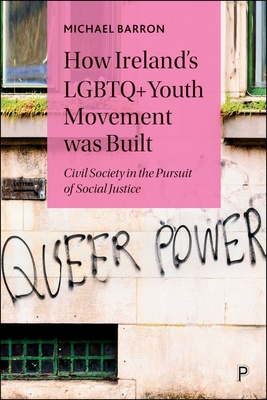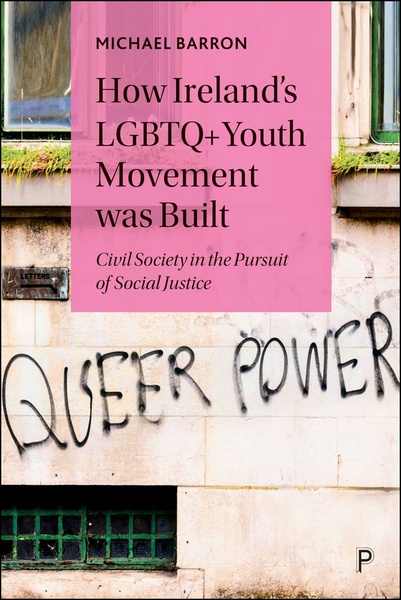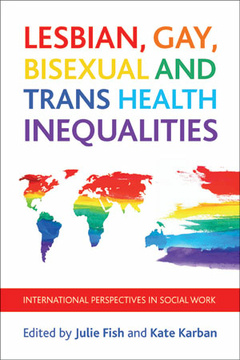How Ireland’s LGBTQ+ Youth Movement was Built
Civil Society in the Pursuit of Social Justice
By Michael Barron
Published
Jul 1, 2025Page count
176 pagesISBN
978-1447368700Dimensions
234 x 156 mmImprint
Policy PressPublished
Jul 1, 2025Page count
176 pagesISBN
978-1447368694Dimensions
234 x 156 mmImprint
Policy PressPublished
Jul 1, 2025Page count
176 pagesISBN
978-1447368717Dimensions
234 x 156 mmImprint
Policy PressThis book offers a unique insider perspective from a queer author and activist who was centrally involved in Ireland’s journey from 1993, the year when homosexuality was decriminalised, to 2015, when it became the first country in which marriage equality was enacted by popular vote. It is the first comprehensive study of the impact of LGBTQ+ youth civil society as a leading force on Irish public policy change.
Interdisciplinary in nature, it uses both activist and academic frames to reassess LGBTQ+ activism histories. It draws on personal, historical and policy analysis to provide a comprehensive account of how civil society can drive progressive change in difficult conditions.
Essential reading for understanding the significant public policy changes that have occurred in Ireland, this book provides deep insight into the dynamics of organised social change over long periods of time and offers lessons for future work in this area.
Michael Barron is an Irish and international social justice advocate, author and social commentator. In Ireland, he founded the country's first national LGBTQ+ youth advocacy organisation and campaigned for LGBTQ+ youth inclusion in education, health and public policy, marriage equality and the secularisation of Ireland’s education system. He is a Council of Europe expert of Sexual Orientation and Gender Identity and a human rights grant maker.
1. Introduction
2. ‘Church Anger as Gay Campaign Targets Schools’: LGBTI+ Young People in the Cross Hairs of Culture Wars
3. Belonging: Building a Platform
4. Community Organising and Community Development
5. Queer Optimism: Forging a New Narrative
6. Policy and Politics
7. Civil Society Model for Social Justice Policy Change
8. Conclusion










